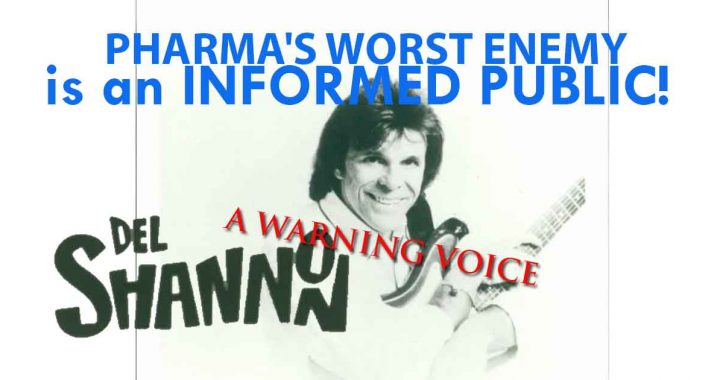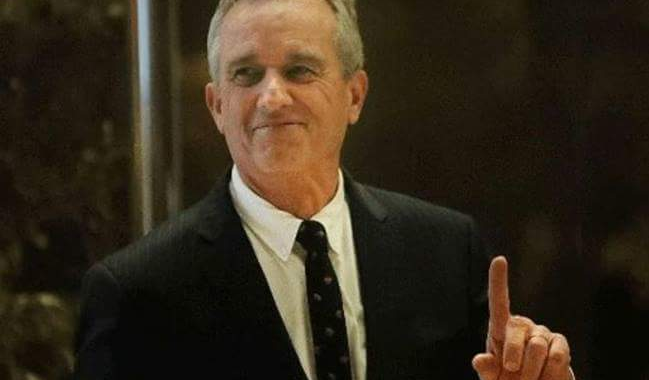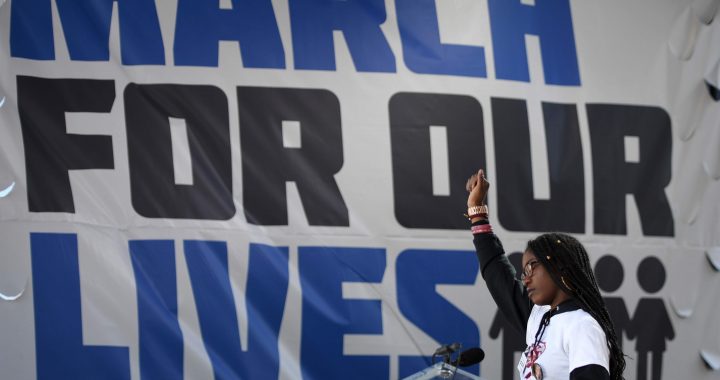Grassley Seeks More Info on Conflict of Interest Policies at Medical Schools
Jump to Comments
June 25, 2009
by Evelyn Pringle
In a June 24, 2009 letter, Senator Chuck Grassley asked 23 medical schools for information about their policies for conflicts of interest and requirements for disclosure of financial relationships between faculty members and the pharmaceutical industry.
“I recently learned from an American Medical Student Association report, AMSA PharmFree Scorecard 2009, that your institution either had “no response” or “declined to submit policies” when asked to supply conflicts of interest policies,” he said in the letter.
Grassley asked the Universities to respond by no later than July 15, 2009.
Of the 149 schools asked, 126 provided information to the AMSA. The Scorecard 2009 was released on June 16, 2009. Thirty-five schools, or 23%, received an F. Seventeen got a D, 18 received a C, 36 were graded B, and only 9 schools received an A.
“There’s a lot of skepticism about financial relationships between doctors and drug companies,” Grassley said in a press release. “Disclosure of those ties would help to build confidence that there’s nothing to hide.”
“Requiring disclosure is a common sense reform based on the public dollars and public trust at stake in medical training, medical research and the practice of medicine,” he added.
Grassley has been working to achieve uniform and universal disclosure of the money that pharmaceutical, medical device and biologic companies give to physicians. He has conducted extensive oversight of financial relationships, especially among doctors who conduct research with the $24 billion awarded annually in federal grants by the National Institutes of Health, the press release explains.
Institutions receiving federal money dollars are required to track financial relationships, “but Grassley has found enforcement of those requirements often to be either lax or in violation,” it said.
“Beginning last summer,” Grassley wrote in the letter, “I began releasing information that made the point that universities are not managing their professors’ financial conflicts of interest and that change is needed at the NIH.” He listed a few examples as:
· Chairman of psychiatry at Emory failed to report hundreds of thousands of dollars in payments from a pharmaceutical company while researching that same company’s drugs with an NIH grant. The Health and Human Services Office of Inspector General (HHS OIG) is now investigating. [That would be Charles Nemeroff].
· Chairman of psychiatry at Stanford received an NIH grant to study a drug, while partially owning a company that was seeking Food and Drug Administration (FDA) approval of that drug. He was later removed from the grant. [The name here is Alan Schatzberg].
· Three professors at Harvard failed to report almost a million dollars each in outside income while heading up several NIH grants. Harvard plans to release a report and is working to update their conflict of interest policies. [These professors are Joseph Biederman, Timothy Wilens, and Thomas Spencer].
· Host of a show that ran on the National Public Radio (NPR) satellite station received over a million dollars from pharmaceutical companies to give promotional talks. The show had received funding from the NIH and has been cancelled. [That would be Fredrick Goodwin]
· Chair of orthopedic surgery at the University of Wisconsin reported taking more than $20,000 from a company every year, for five years. The actual amount was around $19 million. The University of Wisconsin is revising its rules. [The name here is Thomas Zdeblick].
· Professor at the University of Texas received an NIH grant to study Paxil in kids, while also giving dozens of promotional talks on Paxil. This matter has been referred to Health and Human Services, Office of the Inspector General. [This professor is Karen Wagner]
· Professor at the University of Washington in St. Louis who was formerly at Walter Reed Army Hospital failed to report hundreds of thousands of dollars he had received from a device company to develop their products. [That would be Timothy Kuklo].
“To bring some greater transparency to this issue, Senator Kohl and I introduced the Physician Payments Sunshine Act (Act),” Grassley said in the letter the Universities. “This Act will require drug, medical device, and biologics companies to report publicly any payments that they make to doctors, within certain parameters.”
The latest addition to the Grassley list is Emory University’s Zachary Stowe, for not disclosing money he received from drug makers at the same time that he was conducting federally funded research on the use of antidepressants, such as Paxil, by pregnant and nursing mothers.
Stowe has been the primary investigator of an NIH grant since 2004 to study children delivered by women who may also be taking antidepressants. From 2003 to July of 2008, he was the primary investigator of another grant that looked at fetal exposure to medications consumed by pregnant mothers. In 2008, Stowe was the primary investigator of another NIH grant where the stated purpose was “to stimulate vigorous debate with the emphasis on the reproductive safety of antidepressant medications,” according to a June 2, 2009, letter from Grassley to Emory University.
In 2007 and 2008 alone, Stowe received about a quarter of a million dollars from Paxil-maker, GlaxoSmithKline, mostly for giving promotional talks, the letter shows.
Grassley was especially disturbed by an email between Glaxo employees and a public relations firm Glaxo hired, titled “For your review/Paxil Breast Milk Press Release” which states:
“[P]lease review the attached press release and forward me any comments/edits. As you may know, Dr. Stowe is on board for publicity efforts and NAME REDACTED and I are coordinating time to meet with him next week to arm him with the key messages for this announcement, which is slated for early February. We are sending the release for your review at the same time in efforts to secure distribution on Emory letterhead (as you know, would provide further credibility to data for the media).”
During a 2008 deposition in a birth defects lawsuit against Glaxo, Stowe confirmed that the press release was written by the PR firm and concerned his research on Paxil, and explained that placing the press release on Emory letterhead would make the data more credible to the public, as opposed to Glaxo letter head, Grassley said.
Stories on the internet show the Emory name was apparently used to add credibility to Paxil studies. For instance, citing a February 2, 2000, press release by Emory University School of Medicine, titled “New Study Shows Paxil Not Found in Breast-Fed Infants of Depressed Mothers,” on March 13, 2000, the StorkNet website featured an article with the headline: “Study Results Show Paxil Safe for Use by Breastfeeding Mothers With Depression.”
The story included the following paragraph with Emory specifically mentioned and Stowe’s comments:
“Due to the increased occurrence of mood and anxiety disorders during child-bearing years, it is imperative that we continue to research and make treatment options such as Paxil available for mothers who want the opportunity and benefit of breastfeeding their children,” said study leader Dr. Zachary N. Stowe, director of Emory University School of Medicine’s Pregnancy and Postpartum Mood Disorders Program.
“This study provides compelling data that Paxil is a viable treatment option for mothers who would like to continue breastfeeding.”
In the deposition, Stowe said he had been on Glaxo’s speaker’s bureau since 1999 and claimed that on top of his $232,000 Emory salary, he earned an additional 20 – 30% more doing work for drug companies.
On June 10, 2009, on the “Carlat Psychiatry Blog,” Dr Daniel Carlat noted that, “Stowe appears to have been deceptive during a recent deposition, when he claimed that on top of his $232,000 Emory salary, he earned an additional 20 – 30% more doing work for pharmaceutical companies.”
If he made $154,400 from GSK alone in 2007, “by my calculation this is already 66% more salary than he got from Emory,” Carlat said. “And Stowe did work for lots of other companies as well.”
Here is his disclosure from a Medscape CME gig he did in March 2007: “he has received grants for clinical research, grants for educational activities, and has served as an advisor or consultant to GlaxoSmithKline, Wyeth, and Pfizer. … he has served as an advisor or consultant for Bristol-Myers Squibb. … he has served on the speaker’s bureau for GlaxoSmithKline, Wyeth, Pfizer, and Eli Lilly.”
“Who knows how much money he was also getting from Wyeth, Pfizer, Bristol-Myers Squibb and Eli Lilly?” Carlat wrote. “He may very well have doubled his Emory salary, or more.”
“Furthermore,” he explained, “the $154,400 disclosed by GSK does not include all the cash they paid Stowe through laundered CME money.”
“For example, here is a CME program Stowe did for Medscape that was funded by GSK,” Carlat said, and wrote:
“The program is entitled “Long-term health risks of antiepileptic drugs in women” and is essentially a commercial for using Lamictal in pregnant women with bipolar disorder.”
“In it, Stowe begins by saying nasty things about Lamictal’s competitors, Depakote and Tegretol, and then minimizes a large study showing that Lamictal causes cleft palate.”
“I’m sure he got paid a lot for this, and that he did plenty of other similar CME programs that are scattered somewhere throughout the internet.”
“The bottom line is that Stowe has run into the same ethical problem as his boss Dr. Nemeroff-he was taking public NIH money to conduct research, while at the same time giving dozens of promotional talks for a company that stood to benefit from the results of that research,” Carlat pointed out.
On June 10, 2009, the Wall Street Journal health blog reported that, “Emory University has disciplined a prominent psychiatrist who was being paid by an antidepressant maker at the same time he was conducting federal research about the use of such drugs in pregnant women.”
The university said its medical school dean issued a letter of reprimand on April 30 to psychiatrist Zachary Stowe related to his “external relationships,” the WSJ wrote.
Emory has reprimanded Stowe, “who was instructed to immediately eliminate conflicts related to current federal grants,” the health blog noted.
Also, “the National Institute of Mental Health said it is reviewing Stowe’s activities, prompted by a letter from a U.S. Senate committee that said Stowe received $253,700 in 2007 and 2008 for “essentially promotional talks” for the drug maker GlaxoSmithKline,” the Atlanta Journal-Constitution reported on June 11, 2009.
Grassley Seeks More Info on Conflict of Interest Policies at Medical Schools




